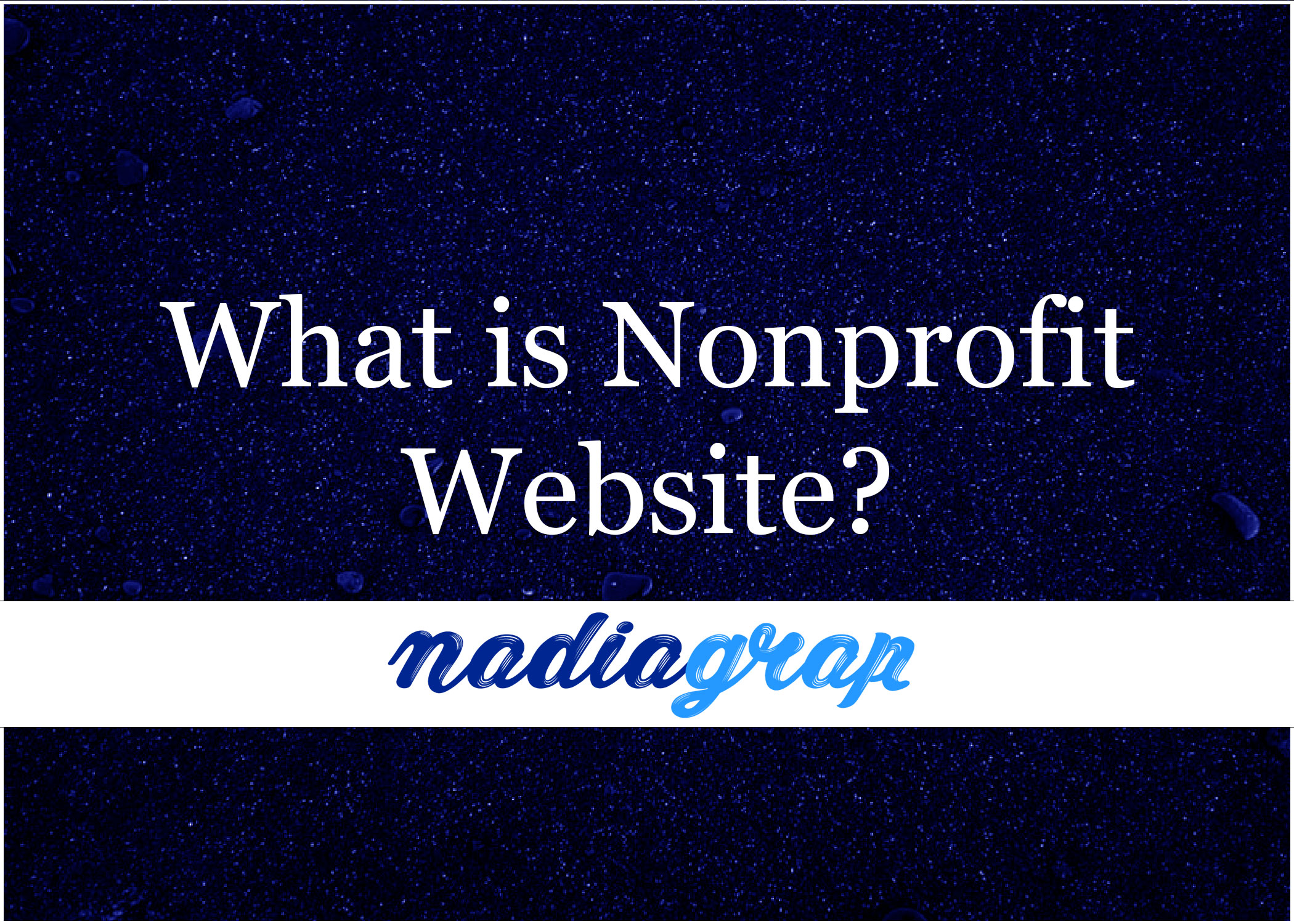

A blog website (a shortened version of “weblog”) is an online journal or informational website displaying information in reverse chronological order, with the latest posts appearing first, at the top. It is a platform where a writer or a group of writers share their views on an individual subject.
The primary difference between a blog and a website is that a blog is a specific type of content displayed on web pages on a website. Confusion often occurs because individuals and representatives of businesses often use the two terms interchangeably. For example, someone might say that they visited a company’s blog when in fact the blog was merely one part of the company’s website. Confusion also occurs because platforms that are devoted entirely to blogging create the impression that a person’s or company’s blog on one of these platforms is also their primary website.
To help sort it all out, keep the following in mind: In most cases, non-blogging websites are updated with new content less frequently then associated blog pages and blog-devoted websites. Blogs typically receive weekly, daily or even less than hourly updates. Non-blog websites, such as individual personal interest and biography or business sites, typically only update their news and blog content at that frequency and then add new pages or update some content as needed. Blogs also promote discussion. They have comment sections designed to create online conversations about blog content and blog owners in a similar fashion as comment sections provided to readers by news media platforms and other publishers under online articles.
Looking at blogging on a smaller scale, the main benefit of starting a blog is the ability to connect with like-minded people. That said, there are other advantages you may gain by taking blogging to the next level.
With the right strategy, blogging allows you to build an audience, which can open up various opportunities, including monetization. We will talk more about how bloggers make money later in the article.
Additionally, blogging is a great way to establish a personal brand. In fact, many professionals today have succeeded in landing jobs thanks to blogging. A blog that showcases your skills and knowledge can make you stand out from the crowd and convince employers of your credibility.
For a business, blogging is an excellent method to improve a website’s online visibility.
Reports have shown that websites with a blog have 434% more indexed pages in search engines. As a result, their chances for ranking on the first pages of SERPs and gaining organic website traffic are much higher.
Seeing this, it’s easy to understand why blog posts are the number one content type for raising brand awareness. With more people checking out your blog, the likelihood of acquiring new customers will be higher too.
Other than that, company websites with a blog section can earn 97% more backlinks than those without. Inbound links are essential to increase a site’s domain authority and cement a brand as an industry authority.
Finally, blogging and SEO make for a cost-effective marketing strategy. Marketers don’t have to spend as much money on blogs as they usually do on online advertising.
What’s more, statistics show that prioritizing blog content can result in a 13 times higher chance of gaining a positive return on investment.
Beyond improving website traffic by updating content regularly, individuals and businesses make money off of their blogs by building trust with members of their target market. They offer content that their target audience finds interesting and useful and that also establishes them as knowledgeable experts. Consumers often buy new products and services from individuals and businesses who they trust.
They are also more likely to be repeat, loyal customers to anyone who engages them and provides them with “free” valuable content. Consumers who trust an individual or business and start to rely upon a specific website for information are then more likely to recognize a brand, buy products or services and even provide word of mouth referrals about their positive experiences to members of their social networks.
Those referrals then often lead to new customers and future sales. Of course, by maintaining contact with members of their target market through their blogs, individuals and business owners who sell products and services are able to bring attention to new products and services and spread news about upcoming sales and deals to people who might not otherwise hear about these details through traditional advertising methods.
Some blog owners earn money every time someone merely clicks static or dynamic ads or other embedded links on their blog pages that go to affiliate partner websites or earn a commission when someone buys a product or service on a partner website after using their link.
Lastly, many blog owners make money by selling their blogs. Blog sales typically happen after a niche topic blog website starts receiving incredibly high traffic and becomes attractive to an investor as a potentially high volume money-making tool. Some people buy a blog just so that they can merge it with their existing blog or shut down the purchased blog site entirely because the competition was driving traffic away from their own blog and/or other websites.
As you can see, a blog provides an individual or business the means to share all kinds of information and reap all sorts of rewards from their efforts. Blogs can be therapeutic alone or do double duty by both serving as a social outlet and money generator. If you do not currently have a blog, review some of the popular blogging sites listed in this guide or check out the blogs of your favorite celebrities, businesses, or hobby associations to give you ideas about what a successful blog looks like and the elements that go into it. If you do have an online diary but you have not promoted or monetized it in the ways outlined in this guide, review these methods and give real consideration to the idea of turning your blog into a secondary income stream.
Now that you know what a blog website is, let’s talk about how a blog can help you develop your business.
One of the most important advantages of blogging is that it allows you to interact with prospects and consumers and create connections with them.
Your blog is an excellent location to give visitors material that provides value and helps them better understand how to address their most pressing problems.
By posting entertaining and meaningful stuff on your blog on a regular basis.
You’re attempting to persuade potential consumers and leads that your company has something to offer.
You may also build your own community with your blog.
Imagine receiving audience remarks in the comment area of your blog article and then sharing thoughts and ideas with them.
If you make your blog’s comments section lively, you’ll build a community of individuals who are clearly interested in your business.
Blogging may also help your company stand out from competitors who offer comparable products or services.
You may exhibit a little individuality in your blog material while still showcasing your industry experience.
This might be the determining factor for a customer who is undecided about whether or not to buy from you or one of your rivals.
You may use blog material to demonstrate to customers how your business is unique and what fresh value you are prepared to offer.
Another advantage of blogging is that it aids in the optimization of your search engine results.
When you add keyword-focused content to your site, you’re building authority and increases your chances of getting found by search engines.
Not to add, high-quality blog material improves your inbound links, which helps you rank higher in search results.
According to Social Media Today, firms that blog receive 97 percent more links to their site than those that don’t.
Another noteworthy statistic to notice is that small firms with blogs see a 126 percent boost in lead growth.
Blog material does not automatically generate traffic to your site when it is published.
Long after the material has been published, search engine users might still locate your blogs in search engine results.
Some evergreen blog material can compound, which means it can help you get more organic search traffic over time.
Compounding blog content may be quite beneficial to small businesses that rely on organic search to develop.
Blogsite, like WordPress, is an open-source platform that is the most popular choice for creating a blog website. And it is presently the most widely utilized technology. A blog website is used by around 27% of all websites worldwide or 35,712 websites.WordPress is a free and open-source content management system that works well with blogs sites. Depending on the items you’re selling, you may customize your site using WordPress and Blogs. You can easily install numerous WordPress and Blog plugins to enhance the functionality of your blog site. A premium WordPress theme is an excellent alternative for blog websites since they provide good customer service and are even more flexible. So, whether you’re starting a small or large Blog business, a blog has everything you’ll ever need to create a high-quality blog site using the WordPress platform.
How to build a blog website?
Check whether the domain name is available using a website like Namecheap.
You can contact me on Fiverr for hire. I will build a professional website for you. Or if you want you can contact me on facebook, linkedin or instagram. Or direct contact with me on my website nadiagrap.com.
We hope you’ve gained some useful knowledge about the world of blogging from this article. If you’ve succeeded in starting a blog, the next step is to focus on the content to keep your potential readers happy and interested. Please have a look at our wide selection of blogging tools to assist you in starting and growing your new site.







About the Nonprofit Website: The ability of nonprofits to communicate their message and cultivate an audience determines whether they succeed or fail. Developing a non-profit

What Is Affiliate Marketing and What Does It Mean to You? Affiliate marketing is a type of advertising in which a firm pays third-party publishers

What is the definition of an educational website? Websites with games, movies, or topic-related resources that operate as tools to increase learning and augment classroom

What is the definition of an entertainment website? An entertainment website is a brand or website that focuses on providing its consumers with high-quality entertainment